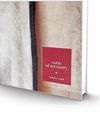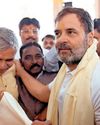
When discussions on the Uniform Civil Code started at the Constituent Assembly, it ignited an emotionally charged beginning. The assembly saw some of its most heated arguments on November 23, 1948, the day it debated and approved the placing of the UCC under the Directive Principles of the Constitution.
The Directive Principles were being discussed that day, and Article 35, which dealt with the UCC, was pushed back to the end of the list so that it could be discussed at length. The debate saw impassioned arguments being made both for and against having the UCC. The members who were against the UCC— many of them from the Muslim community—argued that personal laws were distinct from other categories of law because they were part of the tradition, culture, customs and religion of different communities. It would interfere with the freedom to practise religion, and would, instead of promoting harmony, sow the seeds of disunity.
A member pointed out that he and some others in the assembly had received pamphlets from both Muslim and Hindu groups who felt that any interference with their personal laws was “most tyrannous”. It was asked whether it was possible in a country as vast and diverse as India to have a common set of family laws for all. There was also discussion on whether the term UCC covered the wider ambit of civil laws in the country and not strictly the personal laws.
THE ONLY PERSONAL LAW THAT IS EXCLUSIVELY SIKH IS THE ANAND KARAJ ACT FOR REGISTERING SIKH MARRIAGES. THE SHIROMANI GURDWARA PARBANDHAK COMMITTEE HAS REJECTED THE UCC, SAYING IT THREATENS THE IDENTITY OF MINORITIES.
This story is from the February 18, 2024 edition of THE WEEK India.
Start your 7-day Magzter GOLD free trial to access thousands of curated premium stories, and 9,000+ magazines and newspapers.
Already a subscriber ? Sign In
This story is from the February 18, 2024 edition of THE WEEK India.
Start your 7-day Magzter GOLD free trial to access thousands of curated premium stories, and 9,000+ magazines and newspapers.
Already a subscriber? Sign In

Use multi-asset investing to overcome portfolio volatility
EQUITY MARKETS have been choppy during this year. After rallying for the better part of the first nine months of 2024, equities corrected sharply in October and November, before taking off once again on rally mode in December.

Twist of faith
Upamanyu Chatterjee is back with his wry sense of humour in his new novel, and most of it is directed at religion and spirituality

THE GLORY OF SARI
Saris of Memory weaves together history and textiles, highlighting key moments from the author's collection

We win together
We invented chess, which was pretty cool of us. The original game 'chaturanga'that is four divisions (infantry, cavalry, elephantry and chariotry)-was a war strategy game. When the game travelled to the Middle East, they mangled the Sanskrit and it ended up being called 'shatranj' instead.

BEATS THAT HEAL
Music ignites the light within us, says Grammy-winner Chandrika Tandon

Older, smarter, sexier
Those who worship him regardless of where he works have continued to do so. Such is the power of Alessandro Michele, that after being the face of some mega brands for 10 years (namely Gucci and now Valentino), he remains bigger than the labels themselves. His debut collection for Valentino was presented at the recent Paris Haute Couture Week, and it has been adored by his adorers.

The road to peace
Future political dialogues should explore means of ensuring a more robust autonomy to tribal communities

Diary of a Sherpa
Amitabh Kant's new book is a comprehensive account of the G20 Summit held in Delhi in 2023

The annoying orange
Everything is great. All is sunshine. I am an eternal optimist.\" It's the fad of our TikTok times everything is not great, the sun sets daily, nothing is eternal. If anything, everything is ephemeral, night brings darkness, and optimism often crumbles under the weight of history. British philosopher Roger Scruton warned: \"Hope untempered by the evidence of history is a dangerous asset, one that threatens not only those who embrace it, but all those within range of their illusions.\"

NO SEAT, YET UPBEAT
The Congress is buoyed by its increased vote share in Delhi, and feels it can push the AAP into further decline